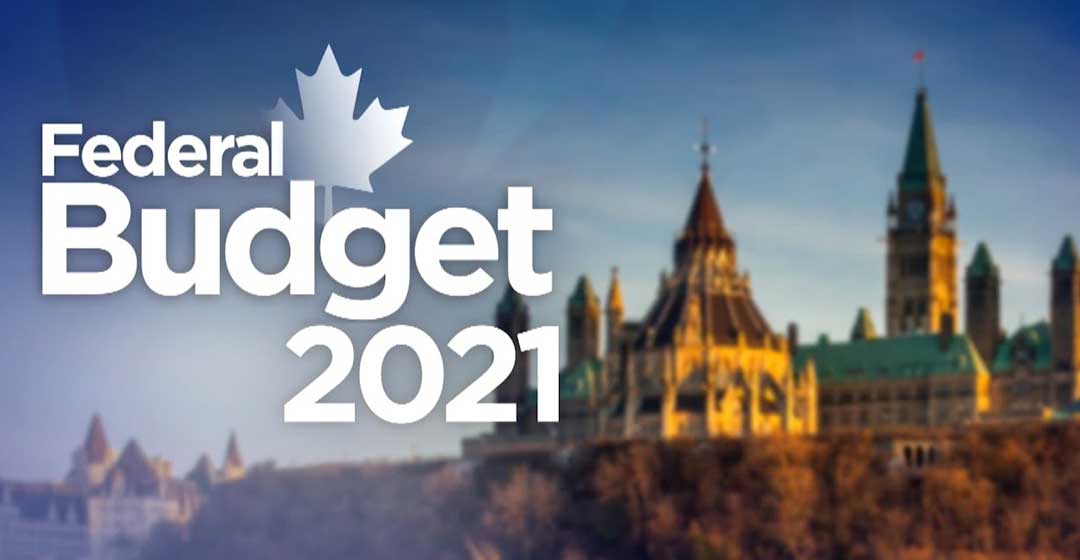
On April 19, 2021, Deputy Prime Minister and Finance Minister Chrystia Freeland tabled in the House of Commons the Liberal Government’s first federal budget in more than two years, A Recovery Plan for Jobs, Growth, and Resilience (Budget 2021). Budget 2021 contains tax measures that provide additional COVID-19 support to Canadian businesses, promote clean energy, introduce new sales and excise tax measures, limit interest deductibility and address certain cross-border financing structures. These measures include:
COVID-19 Support and Recovery
- Extending existing COVID-19 emergency business supports and introducing a new Canada Recovery Hiring Program;
- Promoting immediate expensing of the acquisition of certain depreciable capital property (up to $1.5 million per year) by Canadian-controlled private corporations;
Clean Energy Investment
- Amending the list of eligible Class 43.1 and 43.2 clean energy equipment;
- Offering limited corporate income tax rate reductions for manufacturers of zero-emission technologies;
- Creating a new input tax credit for certain capital investments in carbon capture, utilization, and storage projects;
International Tax/General Corporate Tax
- Introducing new rules to limit the amount of net interest expense that may be deducted in computing Canadian taxable income and to limit the deduction of amounts paid or received under hybrid mismatch arrangements;
- Proposals to overhaul Canada’s transfer pricing rules following the Federal Court of Appeal decision in Her Majesty The Queen v Cameco Corporation(2020 FCA 112);
- Committing to continuing the Government’s work to modernize the general anti-avoidance rule (GAAR);
Sales/Excise Taxes
- Committing to creating an interim digital services tax applicable to digital services businesses and to enact previously announced GST/HST measures applicable to e-commerce platforms;
- Introducing an excise duty on vaping products and a luxury tax on personal use vehicles, boats, and planes;
Compliance/Audit Powers
- Restructuring Canada’s transaction disclosure rules, introducing a new class of “notifiable transactions,” and requiring disclosure of uncertain tax positions; and
- Strengthening the CRA’s audit authority to compel persons to answer all proper questions for any purposes related to the administration or enforcement of, amongst other statutes, the Income Tax Act(Canada) and the Excise Tax Act(Canada).
Source: McCarthy
Newsletters
No Results Found
The page you requested could not be found. Try refining your search, or use the navigation above to locate the post.
Events & Sponsorship
No Results Found
The page you requested could not be found. Try refining your search, or use the navigation above to locate the post.
Articles & Publications
Hiring outlook improves for 2021
Hiring outlook improves for 2021 One-third of employers reporting labour shortages, up from one-quarter: Survey Employers’ hiring intentions for 2021 have improved compared with earlier in 2020, according to a survey from the Bank of Canada. The percentage of...
Tax Brackets Canada 2021
Federal Tax Bracket Rates for 2021 The following are the federal tax rates for 2021 according to the Canada Revenue Agency (CRA): 15% on the first $49,020 of taxable income, and 20.5% on the portion of taxable income over $49,020 up to $98,040 and 26% on the portion...
RRSP Contribution Limits: How Much Can You Deposit?
RRSP Contribution Limits: How Much Can You Deposit? Contributions to registered retirement savings plans (RRSPs) reduce the amount of income tax you pay, but there are limits on how much you can deposit each year. Registered retirement savings plans (RRSPs) encourage...
Home Office Expenses: New Deduction Methods
Home Office Expenses – New Deduction Methods New Simplified Deduction Methods, New Taxable Benefit Exception, and Employer Obligations On November 30, 2020, Deputy Prime Minister and Minister of Finance Chrystia Freeland released Supporting Canadians and...
What Is Bookkeeping?
To understand the financial health of your business, you need to have precise bookkeeping. Bookkeeping involves verifying receipts, depositing payments into a bank account, and keeping clear records so that all financial information is easily accessible when needed....